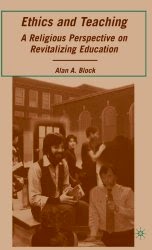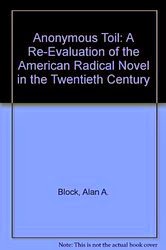On Reading and Life
Of late I spend an hour or two in the dark mornings reading a chapter of Joyce’s Ulysses. Perhaps by Spring I will have finished the novel, again. Today was the Lestrygonians: a population of giant cannibals who kill and devour the sailors of eleven of Ulysses’ twelve fleet of ships as they sail home to Ithaca after the ten-year Trojan War. It is lunchtime and the chapter is filled with food. Bloom is hungry and stops first into The Burton but the sight, sounds and smells of the place sickens him. “Perched on high stools by the bar, hats shoved back, at the tables calling for more bread no charge, swilling, wolfing gobfuls of sloppy foot, their eyes bulging, wiping wetted moustaches. A pallid suetfaced young man polished his tumbler knife fork and spoon with his napkin. New set of microbes. A man with an infant’s saucestained napkin tucked round him shovelled gurgling soup down his gullet. A man spitting back on his plate: masticated gristle . . . Chump chop . . . Smells of men. Spaton sawdust, sweetish warmish cigarettemoke, reek of plug, spilt beer, piss, the stale of ferment . . . His gorge rose. Couldn’t eat a morsel here . . .” I think Joyce gets Bloom right here: though he liked to eat the inner organs of beasts and fowls, this scene seems too much for him. “Out,” he says. “I hate dirty eaters,” and he heads to Davy Byrne’s for a vegetarian meal. “After all,” he thinks, “there’s a lot in that vegetarian fine flavour of things from the earth . . .” He orders a cheese sandwich—gorgonzola—garnished with mustard, and to accompany it, a glass of burgundy. Bloom cuts his sandwich into neat, regular, and ordered slices. I am a vegetarian and I often dine on cheese sandwiches, be they cold or grilled. I garnish with mustard, usually Dijon. I like to dine in clean, well-lighted places
Despite the fact that to read Ulysses I must sit up at my desk awake and alert, a full mug of dark coffee on a coaster beside me and a strong light on the pages of the text, there is something calming when I engage with Joyce’s novel in the early solitary mornings of this pandemic-infected winter. The world is quiet even though the novel is not so; I decide to leave the shades in my home drawn and there exists seemingly no world outside those in which the events of the novel take place or the endeavors of my reading experience. These undertakings are in the moments enough for me. Reading Ulysses demands attention, patience and a willingness to be at times baffled. Bafflement seems an appropriate state in these times. The quiet of the stilldark morning comforts me in these conditions. Ulysses is a difficult book: there are some pages that I study for upwards of ten minutes, and at the end I am still baffled as I turn the page. But I am despite some difficult perplexities happily lost in the world of Dublin, as Leopold Bloom and Stephen Dedalus make their way through the city, the former unconsciously looking for a son and the latter consciously searching for a father. I am, alas, both son and father.
But perhaps, I consider, all reading requires such rigor. Sterne’s Tristram Shandy says, “My way is ever to point out to the curious, different tracts of investigation, to come at the first springs of the events I tell;—with the officious humility of a heart devoted to the assistance merely of the inquisitive;—to them I write,—and by them I shall be read,—if any such reading as this could be supposed to hold out so long, to the very end of the world.” Thoreau announces that this only is reading: that which makes one stand on tip-toes. Reading Ulysses causes me great muscle soreness. But the pain is a welcome outcome, as when after a long run my calf muscles became rubberyweak, Then I know I’ve worked hard and the pain is evidence of my growth. The educational challenge (For almost half a century I have been a teacher) has long seemed to me to be about how to invite students into the rigorous effort entailed in reading and even to enjoy the often difficult, sometimes bewildering and maddening experience of it. And it strikes me now that reading is not unlike living: one moves in life and reading into diverse communities populated by a varied assortment of mostly unexpected strangers who behave in ways and manners that require explanations and understanding, even sometimes sympathy or even antipathy; to deal with stories offered by sometimes very unreliable narrators. How to be comfortable entering these strange and even estranging communities of characters and the events that they provoke is for me the challenge and pleasures of reading. Of course, all communities are not for me, and there are some books I put aside, but without challenge in the reading there is little to keep me engaged. The search for communities in reading and in life never wearies me and even sometimes offers me great delight and reward.










0 Comments:
Post a Comment
<< Home